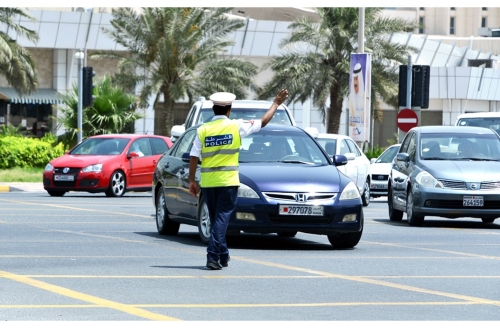The government of Bahrain has rejected a proposed law that aimed to restrict the issuance of driving licenses to foreigners. The government argues that existing legislation already addresses this issue and that the proposed bill would infringe upon fundamental constitutional rights. In response to the proposed law, the government highlighted that the existing Traffic Law delegates the authority to set conditions for obtaining driving licenses to the executive regulations, which apply equally to citizens and residents. The government also cited Article 19 of the Bahraini Constitution, which guarantees personal freedom, including the freedom of movement and residence, subject only to legal restrictions and judicial oversight. The government’s response specifically criticized Article 20 of the proposed law, stating that it makes obtaining a driving license the exception rather than the rule for foreigners, which inverts the principle that freedom is the default position.
The proposed law sought to alleviate traffic congestion by limiting the number of foreign drivers on the roads. However, the government argued that the proposed restrictions on driving licenses go beyond reasonable regulation of the right to movement, which is considered a branch of personal freedom. While acknowledging that the bill doesn’t explicitly remove the right to movement, the government maintained that the proposed restrictions are excessive and unjustified, effectively negating the right to choose one’s mode of transportation. The government concluded that the proposed law’s approach is flawed and incompatible with Bahrain’s constitutional and international commitments to personal freedom. The memorandum highlighted that the bill’s restrictions on driving licenses effectively curtail this fundamental right, contradicting both the constitution and Bahrain’s obligations under international human rights conventions, such as the International Covenant on Civil and Political Rights.
The government’s response to the proposed law emphasizes the importance of upholding fundamental constitutional rights, including personal freedom and the freedom of movement. The government argued that the existing Traffic Law already provides the necessary framework to regulate the issuance of driving licenses to both citizens and residents. The government further criticized the proposed law for making obtaining a driving license the exception rather than the rule for foreigners and for infringing upon the principle that freedom is the default position. By rejecting the proposed law, the government reaffirmed its commitment to protecting personal freedom and ensuring that all individuals, regardless of nationality, have equal rights under the law.
In conclusion, the government of Bahrain has rejected a proposed law aimed at restricting the issuance of driving licenses to foreigners. The government argued that the proposed law is unnecessary as existing legislation already addresses the issue and that the bill infringes upon fundamental constitutional rights. The government’s response highlighted that the proposed law’s restrictions on driving licenses effectively curtail the fundamental right to movement and are incompatible with Bahrain’s constitutional and international commitments to personal freedom. By rejecting the proposed law, the government reaffirmed its commitment to upholding fundamental constitutional rights and ensuring that all individuals, regardless of nationality, have equal rights under the law.











